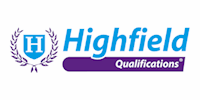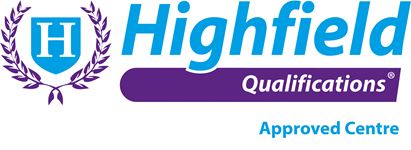
Highfield Level 3 Diploma in Team Leading and Supervision (RQF)
Best Qualification for Team Leaders, Supervisors, new Managers | Ofqual-recognised
Courses For Jobs Ltd
Summary
- Certificate of completion - Free
- Certificate of completion - Free
- Exam(s) / assessment(s) is included in price
- Tutor is available to students
- TOTUM card available but not included in price What's this?
Add to basket or enquire
Overview
The Highfield Level 3 Diploma in Team Leading and Supervision (RQF) qualification is for those currently employed in team leading or supervisory roles in any industry, such as team leaders, supervisors, coordinators, deputy managers, managers, and all those in similar job roles.
Payment covers all learning, assessments, and certificates. No other fees required.
The Highfield Level 3 Diploma in Team Leading and Supervision (RQF) is the qualification that supports the delivery of the Team Leader/Supervisor national occupational standard in the UK, and covers the knowledge, skills and behaviours that team leaders, managers, and supervisors are expected to demonstrate in a real job, as required by this national occupational standard.
Key facts of the Highfield Level 3 Diploma in Team Leading and Supervision (RQF)
Qualification number: 603/4305/9
Learning aim reference: 60343059
Credit value: 40
Assessment method: Portfolio of Evidence
Guided learning hours (GLH): 223
Total qualification time (TQT): 400
Who is this qualification for?
This qualification is aimed at individuals currently employed in team leader or supervisor roles including:
- Supervisor,
- Care Supervisor
- Field Supervisor
- Team Leader
- Care Coordinator
- Project Officer,
- Shift Supervisor,
- Foreperson
- Manager
- Deputy Manager
- Junior Manager
- Shift Manager,
- and those aspiring to similar jobs
Usual Responsibilities of the Team Leader/Supervisor
These responsibilities usually include:
- Supporting,
- managing and developing team members,
- managing projects,
- planning and monitoring workloads and resources.
- Delivering operational plans,
- resolving problems, and
- building relationships
Course Content - 12 mandatory units as follows:
1. Leading people
2. Managing people
3. Building relationships
4. Communication
5. Operational management
6. Project management
7. Finance
8. Awareness of self
9. Management of self
10. Decision making
11. Behaviours of a team leader or supervisor
12. Maintaining continuous professional development
Learning and Assessments include support with online learning materials and assessments, with the learner fully in charge of their own timetable.
The learner has access to online resources on our LMS (Learning Management System) for learning, and our e-Portfolio for assessments and assignments.
Qualification
Level 3 Diploma in Team Leading and Supervision (RQF)
Course media
Description
Level 3 Diploma in Team Leading and Supervision (RQF)
Topics covered
The qualification covers the knowledge and skills learners need to lead or supervise a team, including the interpersonal, leadership and management skills required to succeed in a lower management position. The qualification topics include leading people, building relationships, project management and decision making.
Unit 1. Leading people
- Leadership styles
- Coaching to support people and improve performance
- Organisation cultures
- Equality and diversity and inclusion within an organisation
- Communicate organisation strategy and team purpose
- Adapt communication styles to suit audience
- Support team and individual development through role modelling values and behaviours
- Manage change effectively
Unit 2. Managing people
- People management and team management models
- HR systems and legal requirements
- Performance management techniques
- Supporting and developing individuals,
- Motivating achievement
- Setting operational and personal goals and objectives
- Monitor individual’s progress
- Providing clear guidance and feedback
Unit 3. Building relationships
- Stakeholder relationship management
- Emotional intelligence
- Negotiation techniques
- Managing conflict
- Cross team working
- Building trust
- Engage in discussions and provide feedback
- Identify and share good practice across teams
- Build relationships with customers
Unit 4. Communication
- Different forms of communication and their application.
- Seven Cs of communication
- Effective communication
- Active listening
- Chairing meetings
- Holding challenging conversations
- Providing constructive feedback
- Raising concerns
Unit 5. Operational management
- How organisational strategy is developed
- Implementing operational and team plans
- Managing resources
- Managing change within the team.
- Understand data management
- Creating reports
Unit 6. Project management
- Understand the project life-cycle
- Typical project roles
- How to deliver a project
- Project management tools
- Organise and manage resources and risk
- Monitor progress against the project plan
Unit 7. Finance
- Understand organisational governance and compliance
- Business Accounting purpose
- Basic Financial Terminology
- Budgets - types, uses and limitations
- Delivering Value for Money
- Managing workplace costs
Unit 8. Awareness of self
- Know how to be self-aware
- Understand unconscious bias and inclusivity.
- Using self-assessment tools
- Understand learning styles
- Understand and use emotional intelligence
- Understand feedback mechanisms - types, sources, uses
- Make timely changes
Unit 9. Management of self
- Time management techniques and tools,
- How to prioritise activities
- Effective approaches to planning
- Managing workload and pressure
- Creating an effective personal development plan
- Learning and Development objectives and activities
Unit 10. Decision making
- Problem solving and decision-making techniques
- Decision making steps
- Using data to support decision making
- Monitoring outcomes of a decision
- Escalate issues when required
Unit 11. Behaviours of a team leader or supervisor
- Takes responsibility in all aspects of work
- Demonstrating resilience, determination and accountability
- Being open, approachable and authentic
- Building trust with others
- Seeking views of others
- Being flexible to the needs of the organisation
- Demonstrating creativity, innovation and enterprise when seeking solutions to business needs
- Demonstrating a positive and adaptable attitude
- Responding well to feedback and need for change
- Leading by example
- Being fair, consistent and impartial
- Demonstrating openness and honesty
- Operating within organisational values
Unit 12. Maintaining continuous professional development
- Training Needs Analysis
- SMART objectives
- Keeping and maintaining a CPD log
- Types of CPD activities
- Range of learning activities
- Evaluating effectiveness of CPD activities
- Applying new knowledge, skills and behaviours on everyday work practice
Training and Learning:
Learners receive support with the learner fully in charge of their own timetable.
Learning Support includes:
- online learning materials
- email support from tutor,
- online study group forum
- and other learning resources as required.
How Learning is Assessed
Knowledge and Understanding are assessed through a series of questions and workbooks.
Competence and practical skills are assessed using a variety of assessment methods including:
- Work-products evidence
- Personal Statements
- Reflective Accounts
- Case Studies
- Professional Discussions
Learners will be guided and supported to prepare for assessments.
There are no workplace visits.
All assessments will be done and signed off by the Assessor, and there is no need to involve your Manager or your Employer.
After the Assessor has completed and signed off all assessments of all evidence submitted by the learner, the Internal Quality Assurer (IQA) will conduct full internal quality assurance checks on the portfolio of evidence, and signs off the portfolio, as appropriate.
How long does it take to complete the qualification
How long will it take?
The average learner takes about 400 hours to complete this qualification include learning and assessments.
The duration taken depends how organised and consistent the learner is, and their motivation to complete their assessments and assignments on time.
For example, a learner who spends 2 hours a day on the qualification, five days a week, will put in 10 hours a week, and complete the qualification in 40 weeks, which is about 9 months.
Average duration is within 12 months.
Learners can take as long as 18 months
Those who want to complete quickly can take as short as 6 months.
How to Achieve the Qualification
To achieve the Highfield Level 3 Diploma in Team Leading and Supervision (RQF), learners must complete all units contained within the mandatory group.
What to do next?
Click on "Add to Basket" and pay the initial fee on this site.
Within two working days, you will be sent your learning account details and step by step instructions. You will be able to log into your learning course giving you access to the IAG and learning support, including what to do next to create your monthly payment plan for the rest of the course fees.
After creating your monthly payment plan, please allow 5 working days for your payment plan to go live.
Once your payment plan is completely set up, you will be provided with full access to your assessment account and ePortfolio for your course and you can begin completing your assignments.
Important Reminders
It is the learner's responsibility completely read all the Information in this advert and ensure their full understanding of its contents.
There are no separate exams for this qualification, only assessments.
By making your payment through this site, you have fully agreed to our Terms and Conditions, our Fee Structures, and our delivery style.
Who is this course for?
This qualification is aimed at individuals currently employed in team leader or supervisor roles.
This includes those working in the following job roles:
- Front Line manager,
- Care Manager
- Deputy Care Manager
- Junior Manager,
- Supervisor,
- Care Supervisor
- Field Care Supervisor
- Team Leader,
- Care Team Leader
- Care Coordinator
- Project Officer,
- Shift Supervisor,
- Foreperson,
- Shift Manager,
- and those aspiring to similar jobs
Note on Minimum Requirements:
All prospective learners are required to read this Course Information in full, and no one can bypass this requirement.
The minimum reading ability is professional English.
This qualification is delivered by online and distance-learning and therefore, requires learners to read and understand all course information given to them.
Requirements
Learners need to have access to a computer/laptop/tablet with internet access, to be able to use the e-Portfolio.
Learners need to be employed in a suitable supervisory, team leading or management job role within any sector or industry.
Those not in a management or supervisory role should move to such a job role in order to evidence their skills and competence.
This qualification is delivered in English. Learners must be able to read and write in English, in order to undertake this qualification.
Career path
On successful completion of this qualification, learners may continue their development by undertaking one of the following qualifications, depending on their sector:
- Level 4 Certificate in Principles of Leadership and Management for Adult Care (RQF)
- Level 5 Diploma in Operations and Departmental Management (RQF)
- Level 5 Diploma in Leadership and Management for Adult Care (RQF)
Questions and answers
Currently there are no Q&As for this course. Be the first to ask a question.
Certificates
Certificate of completion
Digital certificate - Included
Certificate of completion
Hard copy certificate - Included
Reviews
Currently there are no reviews for this course. Be the first to leave a review.
Legal information
This course is advertised on reed.co.uk by the Course Provider, whose terms and conditions apply. Purchases are made directly from the Course Provider, and as such, content and materials are supplied by the Course Provider directly. Reed is acting as agent and not reseller in relation to this course. Reed's only responsibility is to facilitate your payment for the course. It is your responsibility to review and agree to the Course Provider's terms and conditions and satisfy yourself as to the suitability of the course you intend to purchase. Reed will not have any responsibility for the content of the course and/or associated materials.





